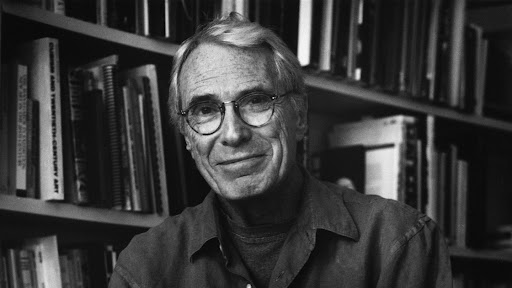
Mark Strand
Your shadow
You have your shadow.
The places where you were have given it back.
The hallways and bare lawns of the orphanage have given it back.
The Newsboys’ Home has given it back.
The streets of New York have given it back and so have the streets of Montreal.
The rooms in Belém where lizards would snap at mosquitos have given it back.
The dark streets of Manaus and the damp streets of Rio have given it back.
Mexico City where you wanted to leave it has given it back.
And Halifax where the harbor would wash its hands of you has given it back.
You have your shadow.
When you traveled the white wake of your going sent your shadow below, but when you arrived it was there to greet you. You had your shadow.
The doorways you entered lifted your shadow from you and when you went out, gave it back. You had your shadow.
Even when you forgot your shadow, you found it again; it had been with you.
Once in the country the shade of a tree covered your shadow and you were not known.
Once in the country you thought your shadow had been cast by somebody else. Your shadow said nothing.
Your clothes carried your shadow inside; when you took them off, it spread like the dark of your past.
And your words that float like leaves in an air that is lost, in a place no one knows, gave you back your shadow.
Your friends gave you back your shadow.
Your enemies gave you back your shadow. They said it was heavy and would cover your grave.
When you died your shadow slept at the mouth of the furnace and ate ashes for bread.
It rejoiced among ruins.
It watched while others slept.
It shone like crystal among the tombs.
It composed itself like air.
It wanted to be like snow on water.
It wanted to be nothing, but that was not possible.
It came to my house.
It sat on my shoulders.
Your shadow is yours. I told it so. I said it was yours.
I have carried it with me too long. I give it back.
By Mark Strand
La tua ombra
Hai la tua ombra.
I luoghi in cui sei stato l’hanno restituita.
I corridoi e i prati spogli dell’orfanotrofio l’hanno restituita.
La Newsboys Home l’ha restituita.
Le strade di New York l’hanno restituita e anche le strade di Montreal.
Le camere di Belém dove le lucertole divoravano le zanzare l’hanno restituita.
Le strade scure di Manaus e quelle afose di Rio l’hanno restituita.
Città del Messico dove te ne volevi andare l’ha restituita.
E Halifax dove il porto si lavava le mani di te l’ha restituita.
Hai la tua ombra.
Quando viaggiavi la scia bianca del tuo incedere affondava
l’ombra, ma quando arrivavi la trovavi ad attenderti.
Avevi la tua ombra.
Le soglie che varcavi ti sottraevano l’ombra e quando uscivi te la restituivano.
Avevi la tua ombra.
Anche quando te la dimenticavi, la ritrovavi; l’ombra era stata con te.
Una volta in campagna l’ombra di un albero coprì la tua ombra
e tu non venisti riconosciuto.
Una volta in campagna pensasti che la tua ombra fosse proiettata da un altro.
L’ombra non disse nulla.
I tuoi abiti portavano dietro la tua ombra; quando li toglievi, lei si diffondeva come il buio del tuo passato.
E le tue parole che volavano come foglie in un’aria persa, in un luogo che nessuno conosce, ti hanno restituito la tua ombra.
Gli amici ti hanno restituito la tua ombra.
I nemici ti hanno restituito la tua ombra. Hanno detto che era pesante e avrebbe coperto la tua tomba.
Quando moristi la tua ombra dormiva sulla bocca del forno e mangiò come pane i ceneri.
Esultava tra le rovine.
Vigilava mentre gli altri dormivano.
Risplendeva come cristallo tra le tombe.
Componeva se stessa come l’aria.
Voleva essere come sull’acqua.
Voleva non essere nulla, ma non era possibile.
Venne a casa mia.
Mi sedette sulle spalle.
La tua ombra è tua. Glielo dissi. Le dissi che era tua.
L’ho portata con me troppo tempo. La restituisco.
Traduzione di Damiano Abeni
Mark Strand (1934-2014) è stato uno dei più autorevoli poeti statunitensi. È vissuto a New York, dove ha insegnato alla Columbia University. In Italia, oltre alle plaquette per le Edizioni “L’Obliquo” sono disponibili tre antologie delle sue poesie: “L’inizio di una sedia”, Donzelli, 1999; “Il futuro non è più quello di una volta”; Minimum fax, 2006; “L’uomo che cammina a un passo avanti al buio, Poesie 1964-2006”, Oscar Mondadori, 2011 con traduzione di Damiano Abeni. È altresì disponibile un volume di scritti d’arte (“Edward Hopper – Un poeta legge un pittore”, Donzelli 2003) e la favola “Il pianeta delle cose perdute”, Beisler 2002. Ha ricevuto numerosi premi tra cui il Pulitzer per la poesia con “Blizzard of One”.
